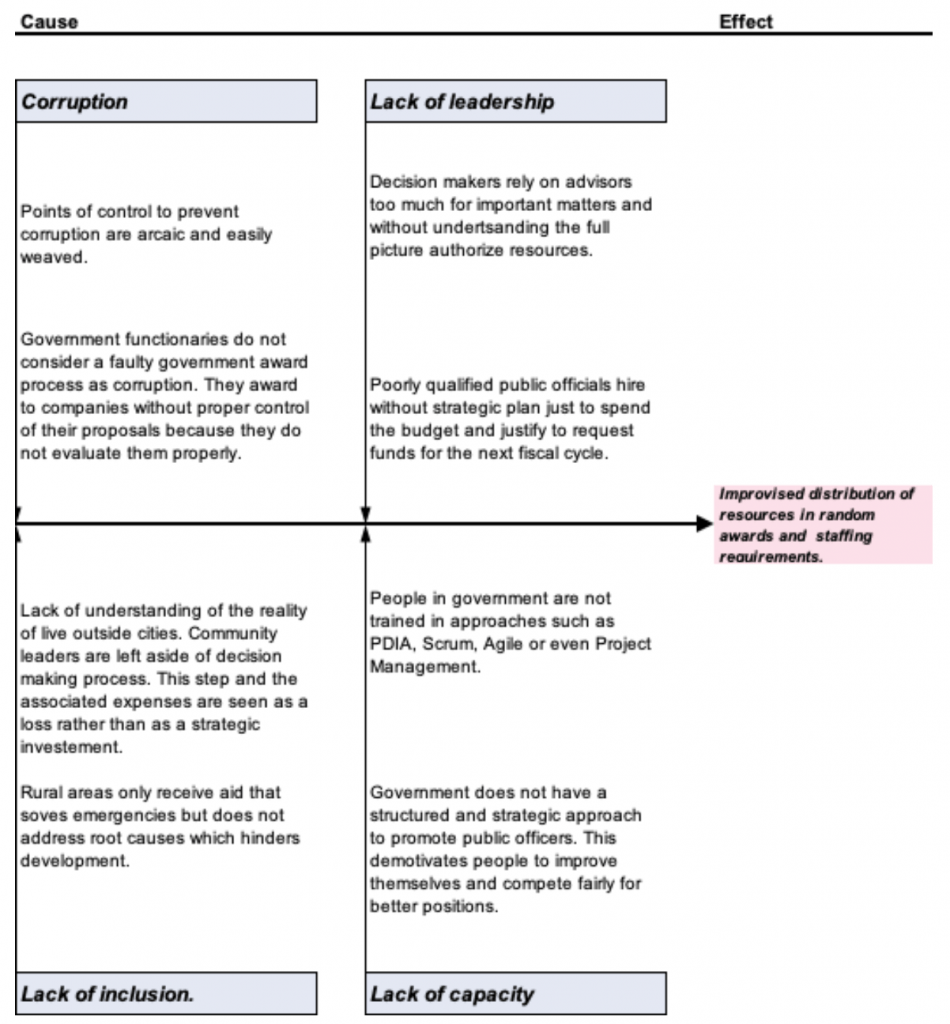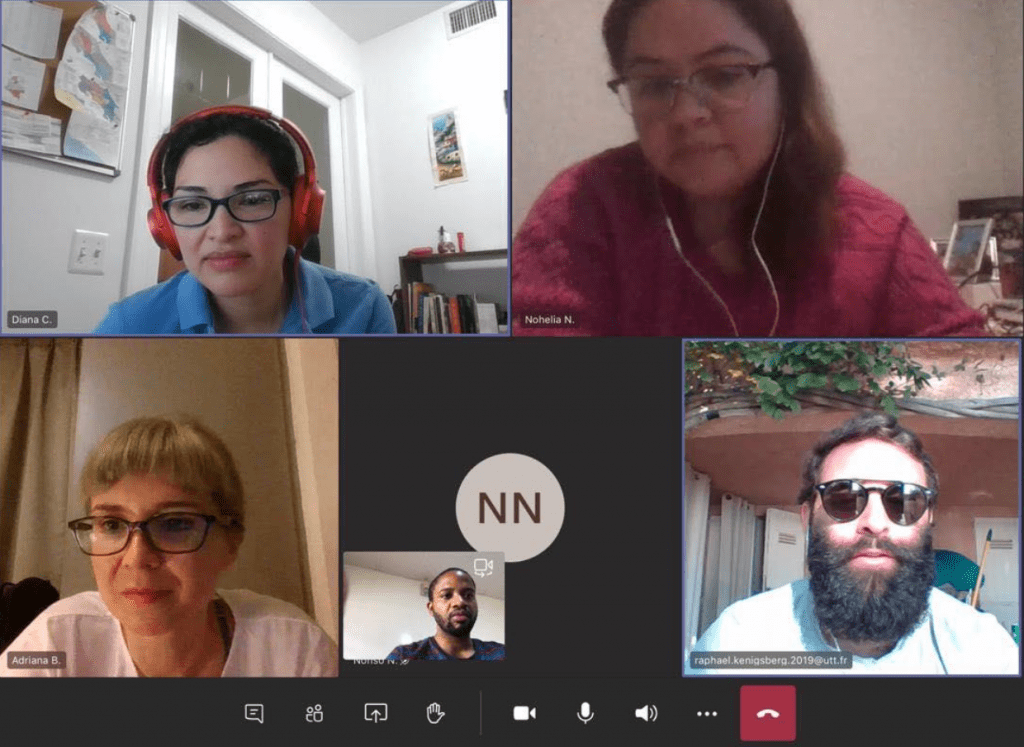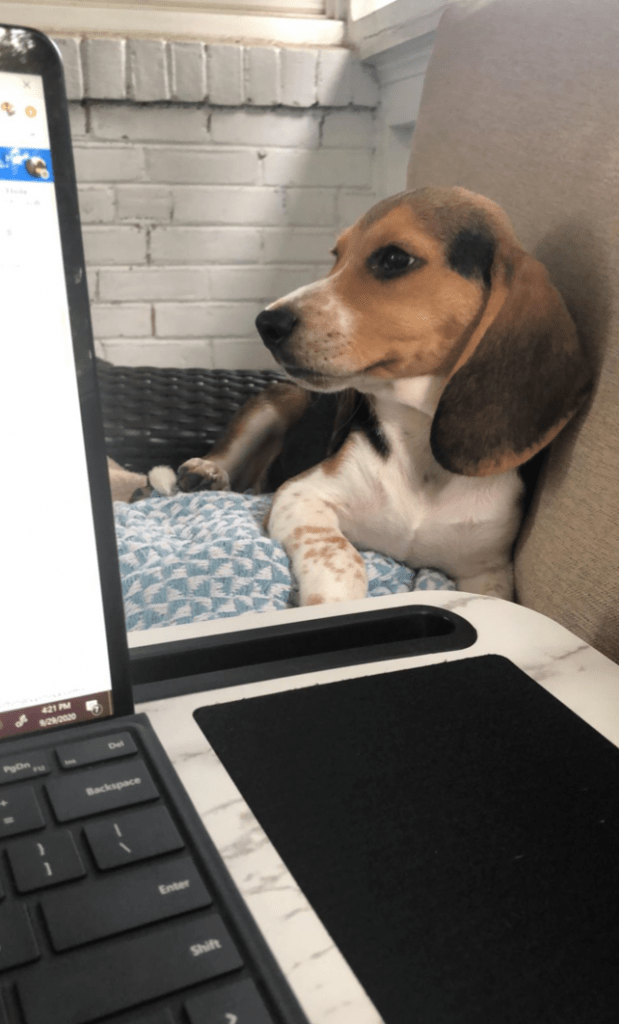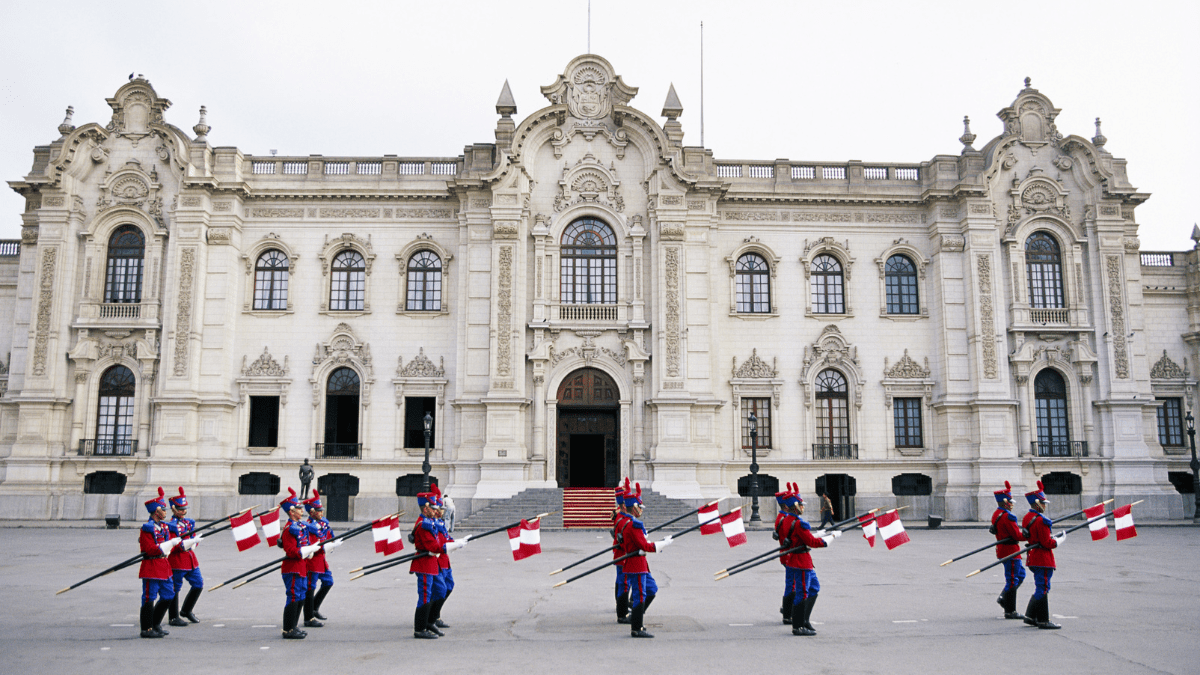Guest blog by Nohelia Navarrete Flores
There is a phrase that reads “A chain is only as strong as its weakest link”. After 10 years of managing Public Health projects, I had realized that it was more than just a phrase; it was a fact, and I started reflecting on how to make that weak link stronger.
I first thought of joining the Implementing Public Policy course to complement what I had learnt in Leading Economic Growth. I was looking forward to experiencing a longer and adaptive process to help me developing the policy challenge I had identified in the previous course.
The first 7 weeks of the course were intense and eye opening, and we learned about PDIA and case studies. The group I was placed reminded me a lot of the project teams I had been part of, diverse and thought-provoking, rich in experiences to share and points of view that would expand my previous understanding of the challenge I had identified and the steps I was planning to take or even how I saw myself in relation to my own challenge.
I currently work in the private sector, as an executive at a US Government contracting firm. I have spent most of my career using different innovative approaches to make the most of the funds we received to improve health and well-being through research and the application of findings. Following this path, I discovered the importance of teaming, placing people in the correct roles, assertive communication and collaboration. I kept a journal of methods I learnt and experiences I had implementing projects in challenging contexts, such as Haiti, Egypt and India. I had the hope that these would help me learn methods and policies that I could use to apply to the development of my country, Peru. The diversity of my experiences allowed me to see that all contexts are unique and that I needed more in order to translate such experiences into skills that allowed me to transfer to the public sector.
I initially had identified that one of the challenges hindering Peru’s development was the fact that public administration and budgeting are designed in a very traditional way, which is not outcome driven. This challenge was how I started working on my fishbone, deconstructing the problem, asking myself once and over again “Why?” and realizing, to my surprise, there were different factors that converged and contributed to this issue.
After weeks of iterating the issue I realized the many factors that played a role in the complexity of this issue and that a good start would be to identify the factors impacting the major leak of sources in the public budget, which was unnecessary awards and hiring, that were not done based on a strategy.

While the fishbone was developed and the challenge was refined, I simultaneously worked in obtaining and scheduling meetings with subject matter experts in Peruvian Public Administration, Outcome drive public management and strategic management. We were able to build a solid team, to design and follow an iterative and adaptive plan. Every week that went by, I brought the lessons learned about leadership, teaming, communicating, and delegating to my working group, and little by little, our meetings went from a space to work to a place of growth.
We went through the extra challenge of the pandemic, which hit Peru particularly hard, and the long existing crisis of our politics. Without any funding from the government, based only in the willingness of the team members, their desire to obtain results that were impactful and meaningful, we ended up developing a unique framework to build staffing plans that are not driven by funding but in the desired outcomes, that are cross sectoral and inclusive. Although we started with the implementing phase, the unexpected and harmful changes in government, driven by personal interest from a particular sector, prevented us from actually executing it. After 6 months of intense work, reaching a “dead end” was frustrating at first, however the IPP journey was not only a journey of iterations and adaptation for my challenge, it was also a transformational experience for me. At the very beginning of the course, Professor Andrews compared the importance of understanding a challenge and its context in order to implement to the importance of understanding your child and yourself when you are a parent. After concluding these 6 months I realized the parallelism of it more than I did then. Like in parenthood, you cannot do it alone, you need family and friends that bring their different personalities, skills and experiences to enrich the process of upbringing; you need to be aware it gets hard sometimes, but you need to give yourself and your team credit for all that you are doing, prize yourself for little victories along the way. When your child grows do not fight it, adapt with her/him, acknowledge that the experience with each child is unique; you can get very good advice (lessons learnt), but to raise a child you need love and you can hardly love what you do not know. Like in motherhood, two of my biggest challenges were to delegate properly and timely and to successfully communicate things. After the class of delegating techniques, I was able to not only apply them but to fully understand the importance of doing so correctly since this created a sense of self confidence on the team that was much needed at a challenging time. The second one, related to communicating successfully, was solved by applying the 4Ps of Leadership. The result was a more engaged team that now feels motivated to keep moving forward in any aspect of their work, without attachment to an initial concept, always curios and with desire to explore further and to strengthen those links that make our country.
To the faculty members and lecturers, my deepest thanks for all the amazing work done. To my group during the IPP course, kudos for being so amazing and supportive, because with their passion and ideas, they will drive change and improvement no matter what they do. I started this journey hopeful and a bit lost; I get to this point hopeful, energized and optimistic, understanding that in the context of the pandemics, we need more than ever the love and understanding of our coworkers, friends and family.

I dedicate the result of what may come from this journey I have started to my daughter Bianca, who is my day-to-day joyful challenge, to my teammate Tudor, and to Doru, the playful beagle we adopted during the pandemic and suddenly passed this past week. He attended every class and step of the challenge by my side without judgement and taught me the only moment to act is the present moment.

This is a blog series written by the alumni of the Implementing Public Policy Executive Education Program at the Harvard Kennedy School. Participants successfully completed this 6-month online learning course in December 2020. These are their learning journey stories.
